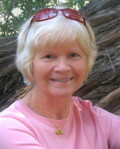THE HORNED OWL
Use this guide to facilitate your library or book club’s conversation about the book.
1. Clifton opens the book with this quote from Mark Twain: “Every man is a moon and has a side which he turns toward nobody; you have to slip around behind if you want to see it.” List the characters in the book that have a side they have kept hidden. Chitto’s job in this novel is to uncover these hidden sides; were you surprised by any of the revelations? Which one surprised you the most?
2. Because of the lack of evidence that has surfaced regarding his father’s decade –old murder, Chitto comes to suspect even his contemporaries in law enforcement: his superior, Daniel Blackfox; his peer, Pete Brody; and FBI agent Ramon Rodriguez. Discuss why he did not suspect Bert Gilly?
3. Clifton includes references in her books to the Choctaw belief in the Shilombish, inner and outer shadows, or ghosts. Over time, Chitto, a scientist by training, has come to look upon these beliefs as more than superstitions. Jasmine Birdsong, whom Sam refers to as Scout, also mentions “the fiery trivets,” which refers to a person’s prophetic abilities. Chitto admits to Jasmine Birdsong at one point that he felt he was being led by a restless ghost. Have you ever experienced a feeling that you were being guided by something otherworldly? Know someone who felt they were? Or are you a skeptic? If the latter, did your skepticism affect your feelings toward the book?
4. Some of the characters in the book suffer moments of indiscretion and/or bad judgment. Identify them and discuss their reasons for acting in the manner they did. In particular, contrast archaeoologist Mackie Green and the “honorable man,” Charlie Walker. How did you feel about the explanations given for their poor decisions? Did you find them understandable or a flimsy excuse?
5. In the beginning, Chitto worked to prove Bobby Taneyhill innocent. Discuss his role with the greenhorn defense attorney, Susan Dayton, to see justice served and how it backfired. Also discuss the innkeeper Bud’s methodology for solving a problem, i.e., “shake the tree and see what falls out.” This last-ditch effort on the part of Chitto was an appeal to the nature of an honorable man? What do you think Chitto would have done if this effort had failed?
6. Also discuss Chitto’s judgment call with regard to the condemning evidence he found hidden in Shug’s doghouse; did you agree with the call he made to see that justice prevailed? Was it the right call for everyone concerned? Why or why not?
7. A young person’s growth and development is a topic in the book. Discuss the ways Bobby Taneyhill was affected by his early experiences. Do you think Charlie Walker’s view that his grandson’s childhood led his “inwardness” was accurate? An excuse for overlooking the obvious? Or a normal reaction to protect one he loved? What would you have done in a similar situation?
8. Clifton uses description of the Oklahoma landscape to enhance the reader’s understanding of the physical and cultural geography of the American Indian people living there. Discuss how this cultural background affected Bobby Taneyhill. Have group members discuss the types of pictures they drew as a child. Would those pictures be deemed unhealthy by today’s new knowledge of mental health? What was your view of the teachers in the story making the determinations they did regarding the drawings of both Bobby Taneyhill and Sam Chitto as a boy? Did the teachers overreach their bounds?
9. Sam Chitto is not only a lawman but a geologist. Discuss how Clifton uses his collection of worry stones and his introspection about the history of the Earth to enhance the story. Discuss various world cultures’ use of stones and formations to denote the seasons of the year, as almanacs to guide transitions between seasons, or as beliefs in a higher order. Ask if members of the group have visited some of these sites. How were they affected?
10. Discuss how the role of the American Indian law officers differ from others, especially complications they face that their counterparts in city, county, state, and federal do not. What is more interesting to you as a reader, the case the detectives investigate, or the life and culture of the American Indian detective?
11. Chitto has had ongoing disagreements with FBI Agent, Ramon Rodriguez. Discuss the causes for these disagreements and how their relationship seems to change in The Horned Owl, i.e., what shared experiences do the men share that led to a better understanding of the other? Do you tend to lean toward others with whom you share commonalities?
12. New female characters are introduced in The Horned Owl. Which would you like to see return in subsequent books?
Amazon author page: https://www.amazon.com/Lu-Clifton/e/B00703R4WM




